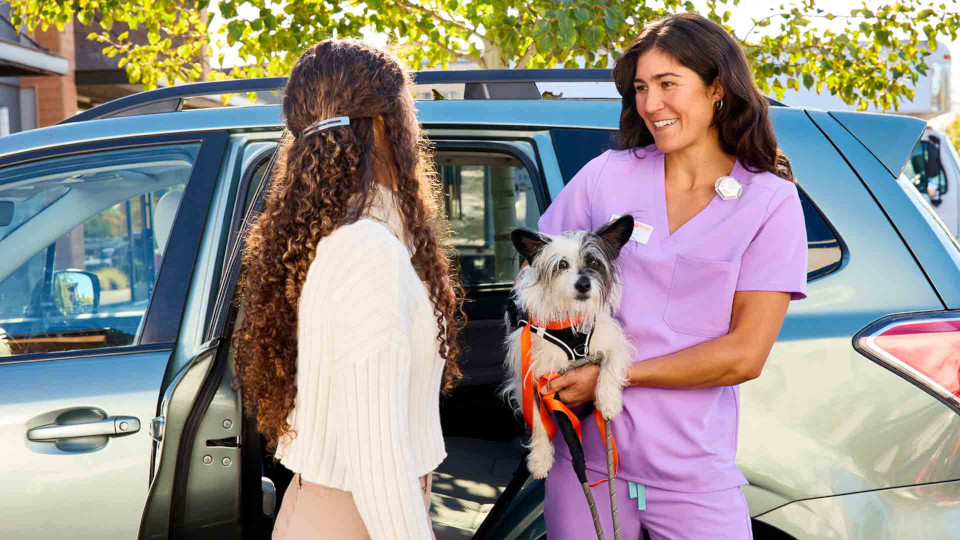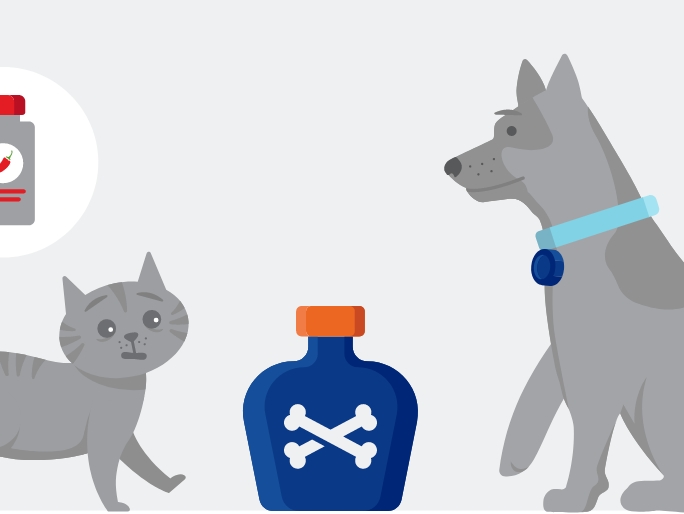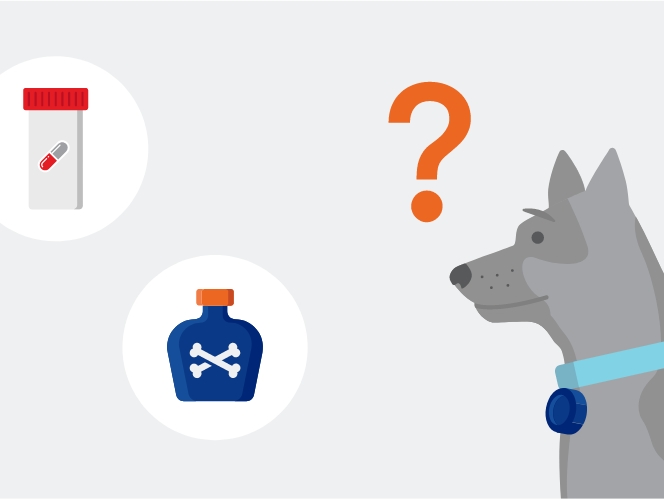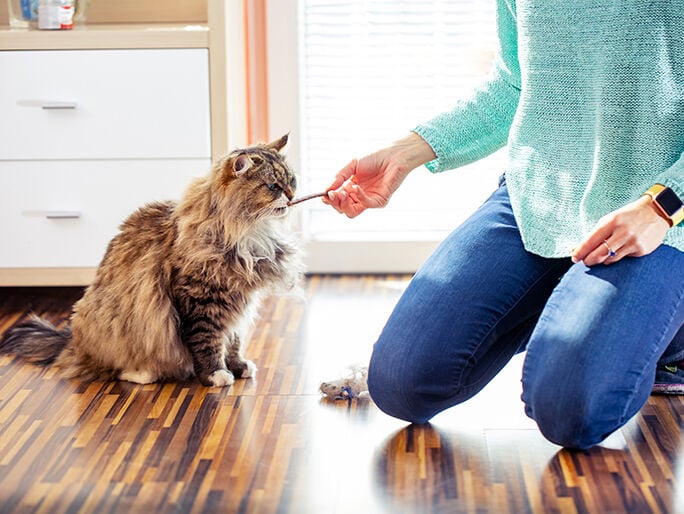Can dogs eat oranges?
Oranges are not toxic to dogs and while they can eat them without seeds or peels, that doesn’t mean they should. To avoid upset tummies, don't feed dogs citrus fruit.
Medically reviewed by Ari Zabell, DVM and Heidi Cooley, DVM
Are oranges good for dogs?

Oranges, clementines, and mandarins may have lots of vitamins and minerals like calcium, magnesium, iron, and potassium — but that doesn’t mean they need to be part of your pup’s diet.
Most dogs are pretty stable with their regular food. Commercial dog foods are formulated to be nutritionally balanced and include essential vitamins and minerals. Too many treats or table food could cause an imbalance in your pet's digestion — and promote poor manners! See why nutrients in pet food matter
What are the risks of feeding dogs oranges?

Some dogs have sensitive stomachs. Any time you feed your dog food from the table, it could cause digestive issues like gas, diarrhea, or vomiting. Because oranges, clementines, and mandarins are acidic and high in sugar, they could upset the balance of your dog’s tummy. Be extra cautious around what your dog eats if they have a health condition.
If your dog gets ahold of citrus fruit, the seeds and peels are choking hazards and hard to digest. Peels may contain toxins and could also cause blockages in their digestion.
Monitor your dog’s condition if you know they’ve consumed them. Always dispose of peels and seeds in a place where your dog won’t be able to reach them.
Can puppies have oranges?
If your puppy can eat solid food, then it’s generally safe for them to have a little bit of orange. A puppy’s stomach is more sensitive and prone to upset digestion, so take it slow and only offer them a little bit.
Can dogs have orange juice?
Do not give dogs orange juice. Store-bought orange juice contains a lot of sugar as well as citric acid. Both can be harmful to a dog’s digestion.
What other fruit can dogs eat?
Many fruits, like oranges, may not be toxic to dogs but should still be avoided. Fruit contains a lot of sugar and acid that may upset the sensitive stomach of your furry friend.
If your dog gets ahold of the following fruit, know that the fruit flesh doesn’t contain any known toxins for canines. A bite or two likely won’t cause any issues, but monitor how they respond and avoid letting them eat any more. Call your vet if you’re concerned about your pup or if they aren’t feeling well.
- Apples
- Bananas
- Berries
- Cantaloupe
- Cherries
- Honeydew
- Mango
- Peaches
- Pears
- Watermelon
Always keep peels, pits, stems, and seeds from any fruit away from pups. They can be choking hazards and sometimes toxic.
Which fruit is most toxic to dogs?

Grapes, raisins, and currants are poisonous to dogs. Always keep them away from your pet. Ingesting them could lead to kidney failure and even death. Even just one grape puts them at risk.
If you think your pet may have eaten something toxic, call the pet poison helpline at 800-213-6680. See more at www.petpoisonhelpline.com
It's also best not to feed tomatoes to dogs. While red, ripe tomatoes are technically not toxic for them, there are two toxins found in the seeds, stems, and leaves. Definitely do not give them unripe green tomatoes, which could lead to tomatine poisoning.

Avocados are another tricky fruit because much of its components contain persin, which is poisonous to dogs. High exposure to it can cause diarrhea, vomiting, and heart damage. Avocado flesh has low amount of persin and is technically not toxic, but it still has a high concentration of fat, which can cause digestive upset or weight gain. Read more about what's poisonous to pets
Rewarding your dog with food
Often the act of giving — not the treat itself — makes a moment fun for your pet. And while it’s tempting to share your food with them, people food isn’t designed for their bodies.
At its best, feeding pets people food encourages poor behavior like begging, eating food from tables or counters, sneaking into the garbage, or nabbing food from unsuspecting guests. At its worst, sharing the wrong food can be life-threatening to your dog, and it often leads to upset tummies or weight gain.


Have more questions about what to feed your dog?
Get answers anytime with Pet Chat™. A veterinary professional is available 24/7 with knowledge and advice on dog health. Access it online or on the Banfield app. It’s included with every Optimum Wellness Plan. Every plan also includes a one-on-one nutritional advice session.
For more information about your dog’s diet or if your pet has an upset stomach and is showing signs of gastrointestinal distress, schedule an appointment at Banfield.
 Mites and mange
Mites and mange Podcast - Not Just Fluff
Podcast - Not Just Fluff




